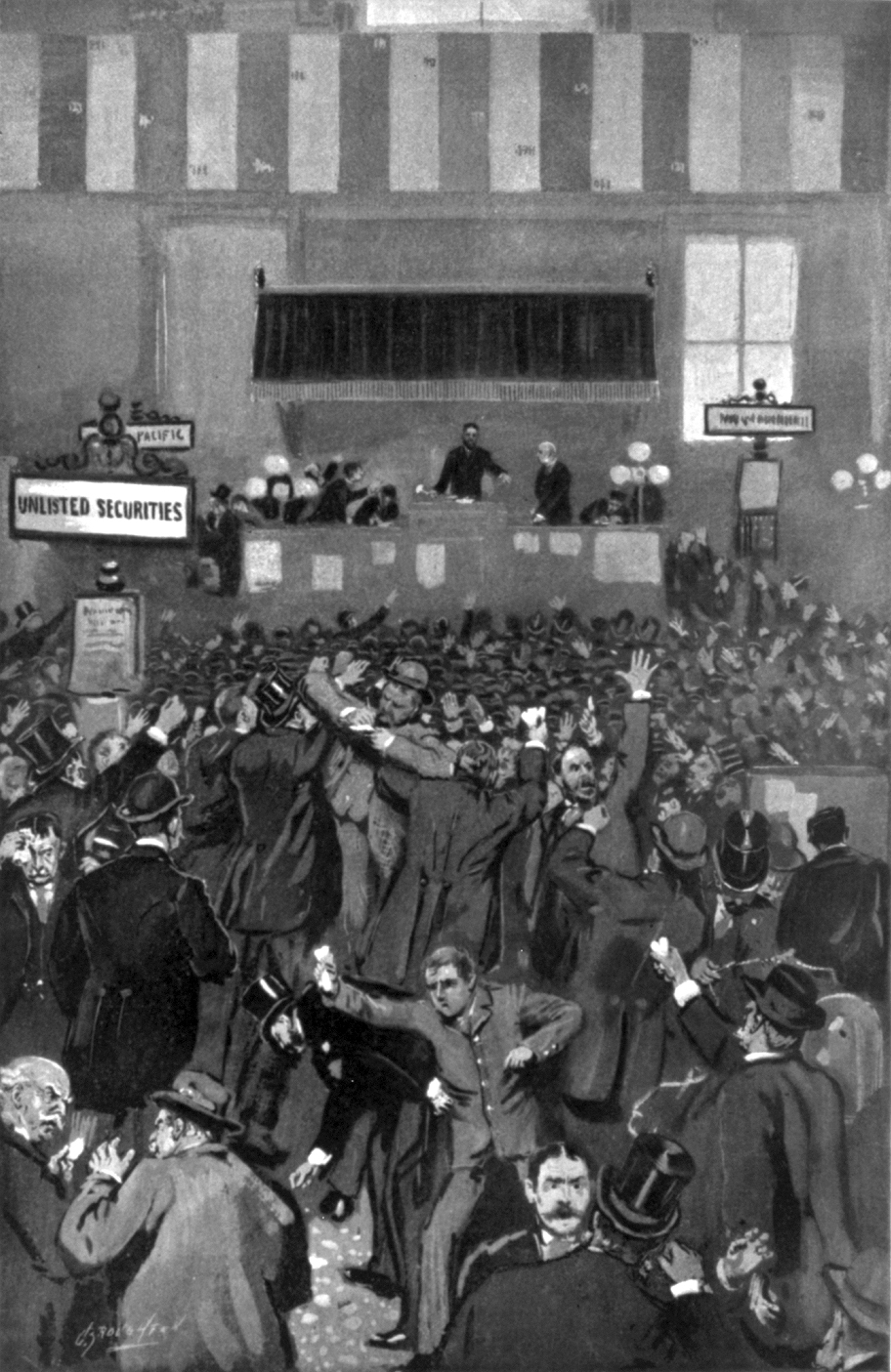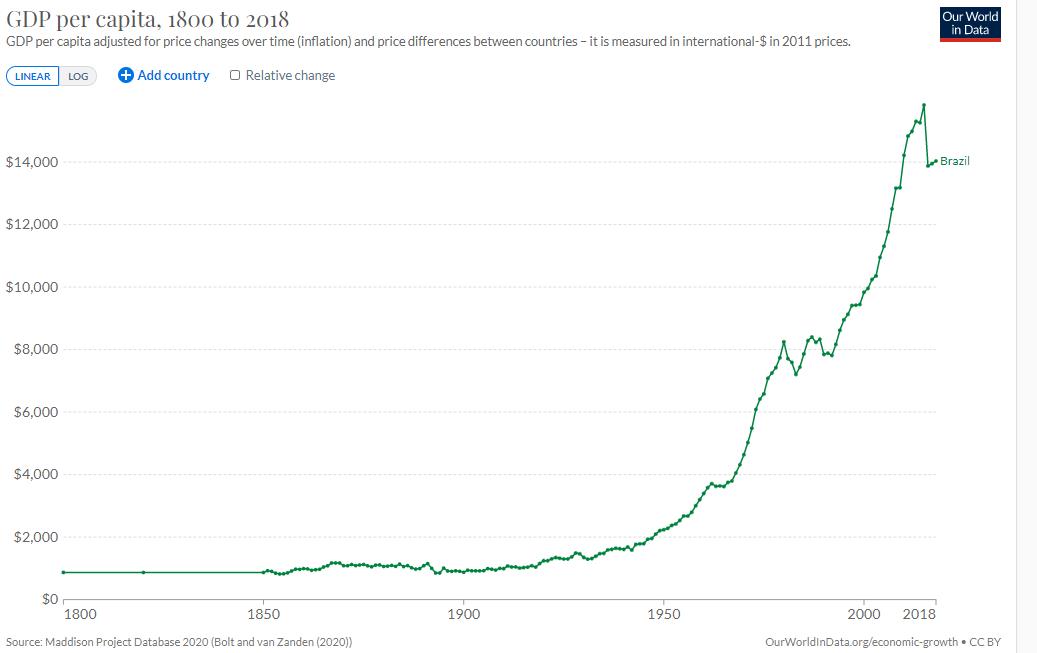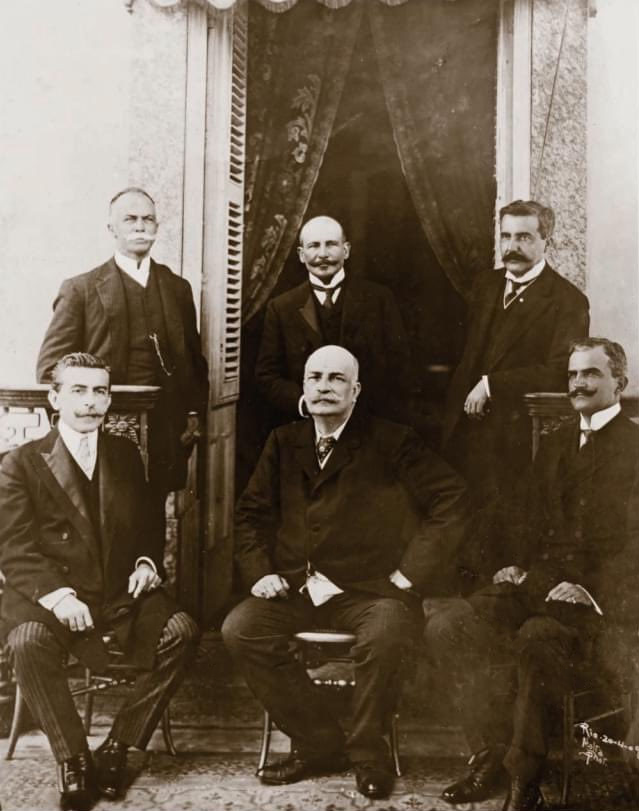|
Taubaté Agreement
The Taubaté Agreement ( pt, Convênio de Taubaté), was an agreement signed on 9 February 1906 during the First Brazilian Republic between the presidents of the states of Minas Gerais (Francisco Antônio de Sales), São Paulo (state), São Paulo (Jorge Tibiriçá Piratininga, Jorge Tibiriçá) and Rio de Janeiro (state), Rio de Janeiro (Nilo Peçanha), the main producers of coffee in Brazil. Foreseeing the harvest of a record crop, the agreement was signed in order to artificially maintain the high prices of coffee. Based on the principles of the , an intervention by the Federal government of Brazil was agreed for the benefit of the coffee growers in certain regions of the country. The agreement established minimum prices for the purchase of surplus coffee production by governments, that the export of inferior types of coffee was to be discouraged, the improvement of the advertising of Brazilian coffee abroad, the stimulation of domestic consumption and the restrictment of the ex ... [...More Info...] [...Related Items...] OR: [Wikipedia] [Google] [Baidu] |
Panic Of 1893
The Panic of 1893 was an economic depression in the United States that began in 1893 and ended in 1897. It deeply affected every sector of the economy, and produced political upheaval that led to the political realignment of 1896 and the presidency of William McKinley. Causes The Panic of 1893 has been traced to many causes, one of those points to Argentina; investment was encouraged by the Argentine agent bank, Baring Brothers. However, the 1890 wheat crop failure and a failed coup in Buenos Aires ended further investments. In addition, speculations in South African and Australian properties also collapsed. Because European investors were concerned that these problems might spread, they started a run on gold in the U.S. Treasury. Specie was considered more valuable than paper money; when people were uncertain about the future, they hoarded specie and rejected paper notes.Nelson, Scott Reynolds. 2012. A Nation of Deadbeats. New York: Alfred Knopf, p. 189. During the Gi ... [...More Info...] [...Related Items...] OR: [Wikipedia] [Google] [Baidu] |
History Of Minas Gerais
Minas Gerais () is a state in Southeastern Brazil. It ranks as the second most populous, the third by gross domestic product (GDP), and the fourth largest by area in the country. The state's capital and largest city, Belo Horizonte (literally "Beautiful Horizon"), is a major urban and finance center in Latin America, and the sixth largest municipality in Brazil, after the cities of São Paulo, Rio de Janeiro, Salvador, Brasília and Fortaleza, but its metropolitan area is the third largest in Brazil with just over 5.8 million inhabitants, after those of São Paulo and Rio de Janeiro. Nine Brazilian presidents were born in Minas Gerais, the most of any state. The state has 10.1% of the Brazilian population and is responsible for 8.7% of the Brazilian GDP. With an area of —larger than Metropolitan France—it is the fourth most extensive state in Brazil. The main producer of coffee and milk in the country, Minas Gerais is known for its heritage of architecture and coloni ... [...More Info...] [...Related Items...] OR: [Wikipedia] [Google] [Baidu] |
Economic History Of Brazil
The economic history of Brazil covers various economic events and traces the changes in the Brazilian economy over the course of the history of Brazil. Portugal, which first colonized the area in the 16th century, enforced a colonial pact with Brazil, an imperial mercantile policy, which drove development for the subsequent three centuries.Charles C. Mueller and Werner Baer. "The economy". In . Independence was achieved in 1822. Slavery was fully abolished in 1888. Important structural transformations began in the 1930s, when important steps were taken to change Brazil into a modern, industrialized economy. A socioeconomic transformation took place rapidly after World War II. In the 1940s, only 31.3% of Brazil's 41.2 million inhabitants resided in towns and cities; by 1991, of the country's 146.9 million inhabitants 75.5% lived in cities, and Brazil had two of the world's largest metropolitan centers: São Paulo and Rio de Janeiro. The share of the primary sector in th ... [...More Info...] [...Related Items...] OR: [Wikipedia] [Google] [Baidu] |
Coffee With Milk Politics
Milk coffee politics or ''café com leite'' politics () is a term that refers to the domination of Brazilian politics under the so-called Old Republic (1889–1930) by the landed gentries of São Paulo (dominated by the coffee industry) and Minas Gerais (dominated by the dairy industry), being represented by the Paulista Republican Party (PRP) and the Minas Republican Party (PRM). The name alludes to the popular coffee beverage ''café com leite'', "milk coffee", referring to the states' respectively dominant industry. History Under Brazil's Old Republic, the patron-client political machines of the countryside enabled agrarian oligarchs, especially coffee planters in the state of São Paulo, to dominate state structures to their advantage, particularly the weak central state structures that effectively devolved power to local agrarian oligarchies. Under the Old Republic, the coffee with milk politics rested on the domination of the republic's politics by the states of São ... [...More Info...] [...Related Items...] OR: [Wikipedia] [Google] [Baidu] |
Coffee Production In Brazil
Brazil produces about a third of the world's coffee, making the country by far the world's largest producer. Coffee plantations, covering some , are mainly located in the southeastern states of Minas Gerais, São Paulo and Paraná where the environment and climate provide ideal growing conditions. The crop first arrived in Brazil in the 18th century, and the country had become the dominant producer by the 1840s. Brazilian coffee prospered since the early 19th century, when immigrants came to work in the coffee plantations. Production as a share of world coffee output peaked in the 1920s but has declined since the 1950s due to increased global production. History Coffee was not native to the Americas and had to be planted in the country. The first coffee was grown by Native Americans. The first coffee bush in Brazil was planted by Francisco de Melo Palheta in Pará in 1727. According to the legend, the Portuguese were looking for a cut of the coffee market, but could not obtai ... [...More Info...] [...Related Items...] OR: [Wikipedia] [Google] [Baidu] |
Coffee King
Coffee King ( pt, Rei do Café) was an informal title created in Brazil during the 19th century and used until the early 20th century. It was usually applied to the biggest coffee producer of a given period. In spite of the lack of consensus around the exact number of Coffee Kings, there are sources pointing to at least five of them: * * Henrique Dumont * * Carlos Leôncio de Magalhães * See also * Agriculture in Brazil * Coffee cycle * Coffee production in Brazil * Coffee with milk politics * Economic history of Brazil * ''Fazenda A ''fazenda'' () is a plantation found throughout Brazil during the colonial period (16th - 18th centuries). They were concentrated primarily in the northeastern region, where sugar was produced in the ''engenhos'', expanding during the 19th ...'', Brazilian plantations * Taubaté Agreement References Agriculture in Brazil Coffee production 19th century in Brazil {{Brazil-econ-stub ... [...More Info...] [...Related Items...] OR: [Wikipedia] [Google] [Baidu] |
Getúlio Vargas
Getúlio Dornelles Vargas (; 19 April 1882 – 24 August 1954) was a Brazilian lawyer and politician who served as the 14th and 17th president of Brazil, from 1930 to 1945 and from 1951 to 1954. Due to his long and controversial tenure as Brazil's provisional, constitutional, and dictatorial leader, he is considered by historians as the most influential Brazilian politician of the 20th century. Born in São Borja, Rio Grande do Sul, to a powerful local family, Vargas had a short stint in the Army before entering law school. He began his political career as district attorney, soon becoming a state deputy prior to a brief departure from politics. After returning to the state Legislative Assembly, Vargas led troops during Rio Grande do Sul's 1923 civil war. He entered national politics as a member of the Chamber of Deputies. Afterward, Vargas served as Minister of Finance under President Washington Luís before resigning to head Rio Grande do Sul as state president, during which h ... [...More Info...] [...Related Items...] OR: [Wikipedia] [Google] [Baidu] |
Wall Street Crash Of 1929
The Wall Street Crash of 1929, also known as the Great Crash, was a major American stock market crash that occurred in the autumn of 1929. It started in September and ended late in October, when share prices on the New York Stock Exchange collapsed. It was the most devastating stock market crash in the history of the United States, when taking into consideration the full extent and duration of its aftereffects. The Great Crash is mostly associated with October 24, 1929, called ''Black Thursday'', the day of the largest sell-off of shares in U.S. history, and October 29, 1929, called ''Black Tuesday'', when investors traded some 16 million shares on the New York Stock Exchange in a single day. The crash, which followed the London Stock Exchange's crash of September, signaled the beginning of the Great Depression. Background The "Roaring Twenties", the decade following World War I that led to the crash, was a time of wealth and excess. Building on post-war optimism, rural Amer ... [...More Info...] [...Related Items...] OR: [Wikipedia] [Google] [Baidu] |
Coffee Cycle
The coffee cycle () was a period in Brazil's economic history, beginning in the mid-19th century and ending in 1930, in which coffee was the main export product of the Brazilian economy. The coffee cycle succeeded the gold cycle, which had come to an end after the exhaustion of the mines a few decades earlier, and put an end to the economic crisis generated by this decadence. Coffee had been brought to Brazil in 1727, but was never produced in large scale, being cultivated mostly for domestic consumption. Its production lagged far behind that of other products. Coffee's rise was only due to a favorable internal and external scenario that made its cultivation advantageous. Coffee production developed rapidly throughout the 19th century, so that by the 1850s it was responsible for almost half of Brazil's exports. The center-south region of the country was chosen for the plantations because it offered the most appropriate weather conditions and the most suitable soil, according to ... [...More Info...] [...Related Items...] OR: [Wikipedia] [Google] [Baidu] |
Celso Furtado
Celso Monteiro Furtado (July 26, 1920 – November 20, 2004) was a Brazilian economist and one of the most distinguished intellectuals of his country during the 20th century. His work focuses on development and underdevelopment and on the persistence of poverty in peripheral countries throughout the world. He is viewed, along with Raúl Prebisch, as one of the main formulators of economic structuralism, an economics school that is largely identified with CEPAL, which achieved prominence in Latin America and other developing regions during the 1960s and 1970s and sought to stimulate economic development through governmental intervention, largely inspired on the views of John Maynard Keynes. As a politician, Furtado was appointed Minister of Planning ( Goulart government) and Minister of Culture ( Sarney government). Biography Born in Pombal, a city set in the semi-arid region of the state of Paraíba, Celso Furtado moved to Rio de Janeiro in 1939, to study Law, and graduated from ... [...More Info...] [...Related Items...] OR: [Wikipedia] [Google] [Baidu] |
Afonso Pena
Afonso Augusto Moreira Pena (; 30 November 1847 – 14 June 1909) was a Brazilian politician who served as the List of presidents of Brazil, sixth president of Brazil between 1906 and 1909. Before his political career, Pena had been an attorney and legal scholar. He was the first president of Brazil to die in office. Pena began his political career in 1874 with an election to the Imperial General Assembly. In the succeeding years, Pena reconciled legislative work with some periods occupying secretariats—secretary of Agriculture (1882), Commerce and Public Affairs (1883) and Justice (1885). As president of the provincial assembly of Minas Gerais, Pena inaugurated the new capital Belo Horizonte. After the Proclamation of the Republic (Brazil), proclamation of the Republic, he was List of governors of Minas Gerais, president of Minas Gerais between 1892 and 1894. It was during his administration that Belo Horizonte was set for the future state capital (which at that time was Ouro ... [...More Info...] [...Related Items...] OR: [Wikipedia] [Google] [Baidu] |





